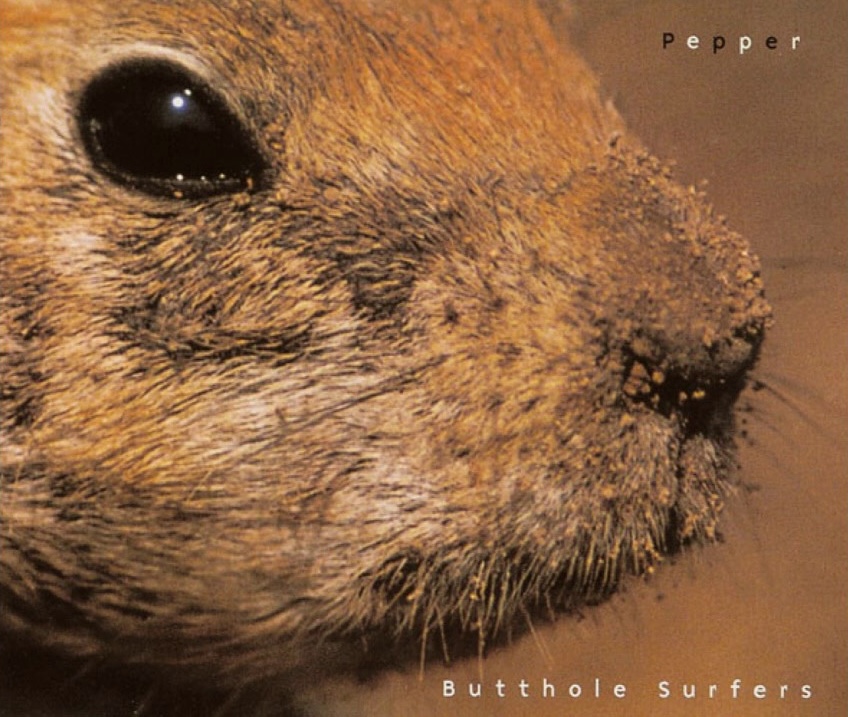September 23, 1967
- STAYED AT #1:4 Weeks
In The Number Ones, I'm reviewing every single #1 single in the history of the Billboard Hot 100, starting with the chart's beginning, in 1958, and working my way up into the present.
There are so many brilliant pop musicians who never see any success in their times. And then there's Alex Chilton.
Chilton was, of course, the leader of Big Star, maybe the definitive unpopular pop group. For a few years in the '70s, Big Star were cranking out twinkling, evocative, close-to-perfect pieces of guitar-pop. They were lyrically direct and melodically ambitious, and they fit big ideas into small packages. In the years since, hundreds of thousands of music nerds have lamented the fact that Big Star never sold any records. But they still cast a huge shadow, in other ways.
Big Star were a tremendous foundational influence on R.E.M., on Primal Scream, and on anyone who ever recorded anything that could be described as "power-pop." The Bangles covered one of Big Star's songs on a massively popular 1986 album. The Replacements named one of their best songs after Chilton. Cheap Trick's cover of a Big Star song was the theme music for That '70s Show. Katy Perry put the "u" in the title of her world-conquering single "California Gurls" as a tribute to Chilton and to Big Star's "September Gurls." One of my favorite albums of 2018 has a song about slow-dancing to Big Star in a bar at closing time. They are a touchstone. But in their time, they couldn't sell any records at all, something that plunged most of the members of the band into depression.
And the weird tragedy of all of that is that Chilton did know success. He just had his success before he knew what to do with it. When Chilton was in his 20s, he was a nobody. But when he was 16, he sang the most popular song in the country.
Chilton was a Memphis kid, the son of a jazz musician. When he was 15, he sang at a high school talent show and impressed a whole lot of people. The members of a local teenage band called the Devilles (no relation to this guy) heard about Chilton's performance and recruited him to sing and play guitar in their band.
Meanwhile, the country songwriter Wayne Carson Thompson, who would later co-write "Always On My Mind," had a demo for a song he'd written called "The Letter." Chips Moman, the owner of a local studio, suggested this upstart band as a group who might be able to record it. There was already a New York band called the Devilles, so the Memphis Devilles had to change their name, and they settled on the Box Tops. They'd never been in a studio before "The Letter," but they knocked it out. Producer Dan Penn added in a plane-taking-off noise that he'd pulled from a sound-effects record that he'd checked out of the library. Given all that, "The Letter" should be a sloppy and amateurish record, which wouldn't necessarily prevent it from being great. (See: "96 Tears.") But "The Letter" is not that. It's a two-minute epic.
A funny thing about Alex Chilton: He sounded much younger in Big Star than he did in the Box Tops, when he was an actual young person. On "The Letter," Chilton sounds weary and ravaged. He's stuck somewhere far away from his baby, and he's got to go see her right away. We don't know where he is, why he's separated from her, or what she wrote in her letter. (Maybe he's a soldier at war, trying to go AWOL? That's how I've always heard it, though there aren't any fast trains from Hanoi to Memphis.) But Chilton's voice absolutely pops off of the record, and it's all the band needs to tell the story.
"The Letter" is a tight, hard, compact piece of white-kid soul. (It's the last #1 song ever to come in under the two-minute mark.) But it sounds big and cinematic anyway, with Chilton's voice fighting its way through nervous organs and melodramatic strings and horn stabs. The verse -- there's really only one verse -- sounds like a chorus, and the chorus sounds like the world ending. There's nothing lo-fi about the record; even if it was recorded on a low budget, it's got the sweep of a James Bond theme. But all that production never drowns out the feverish urgency of the song, and it never muffles Chilton's voice, which punches right through everything.
"The Letter" wasn't the Box Tops' only hit; "Cry Like A Baby" made it to #2 six months later. The Box Tops were busy for a while, cranking out five albums in two years. But the members of the band quickly lost interest. By the beginning of 1970, Chilton and guitarist Gary Talley were the only original members left, and they decided to call it a day. (They reunited a few times over the years, even releasing an album in 1998.)
Chilton was 19 when the Box Tops broke up. He was reportedly offered a spot in the massively successful Blood, Sweat & Tears, replacing the departing Al Kooper. Instead, a year later, he formed Big Star.
GRADE: 9/10
BONUS BEATS: Here's the cover of "The Letter" that the Box Tops' fellow Memphis musician Al Green released in 1969, on his Green Is Blues album:
And here's the Notorious B.I.G.'s 1997 track "The Long Kiss Goodnight," which producer RZA built around a sample of Green's cover of "The Letter":
So that's how we get from Big Star to Biggie Smalls in four degrees of separation.






